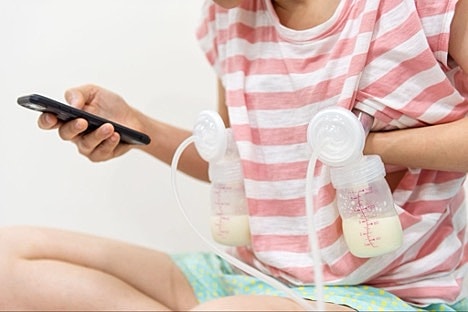

By Stephanie Sublett MD, IBCLC Ob/Gyn & Breastfeeding Medicine Specialist
Breastfeeding provides numerous benefits for both the mother and the infant. However, there may be times during lactation when medication is necessary, and parents may be concerned about the safety of continuing breastfeeding while on medication. Pumping and dumping, while commonly suggested as a way to manage the situation, may not always be necessary. In this blog post, we will explore the reasons why most parents do not need to pump and dump while on medication and the risks associated with pumping and dumping.
Pumping and dumping is not necessary unless there is a legitimate concern about medication exposure to the infant. Parents can continue breastfeeding while taking medication, as the levels of medication in breast milk are often very low. Additionally, pumping and dumping can place unnecessary stress on parents who are already adjusting to the changes of postpartum life. Parents who are exclusively breastfeeding may be unfamiliar with pumping, which can cause further anxiety, stress, and confusion.
Moreover, when considering the risks of pumping and dumping, it is essential to note that the contents of breast milk change based on the time and frequency of breastfeeding. If a parent stops breastfeeding and pumps instead, the milk composition will change, which can affect the infant's growth and development. The routine of nursing may also be disrupted, leading to engorgement, infection, and an overall decrease in milk supply.
Additionally, pumping and dumping may not be the safest option for infants in situations where medication exposure is a real concern. It is possible to save pumped milk for when the infant is older or mix it with other expressed milk to dilute the medication's effects. Research evidence indicates that some medications are relatively safe for breastfeeding infants. In these cases, it is not necessary to pump and dump or to prematurely wean the breastfeeding infant. Overall, pumping and dumping carries more risks than benefits when it comes to managing medication during breastfeeding.
Here are a list of common scenarios where breastfeeding is safe and does not need to be interrupted¹:
Furthermore, pharmacologic principles dictate the safety of medications while breastfeeding. Lactational pharmacology is a specialized field that examines the properties of the medication, its effects on milk production and secretion, and the absorption of the medication by the infant. Healthcare practitioners, including lactation consultants, can provide evidence-based information about medication safety during breastfeeding. With shared decision making, parents can understand the risks and benefits of medication exposure to the infant, along with alternatives to pumping and dumping.
Trusted resources for moms to check safety of medications during lactation:
References: